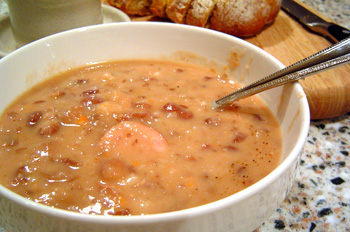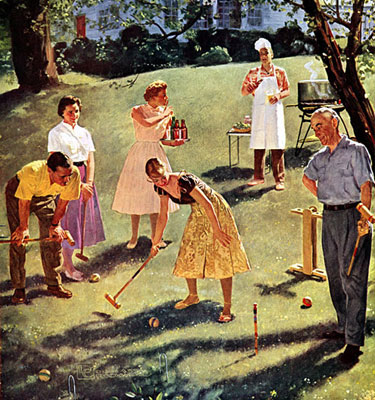 Now that awards season is over I have a big one to give out.
Now that awards season is over I have a big one to give out.
Let me say at the start, I go to too many restaurants. I was basically raised eating in fancy restaurants. Long before other parents took their kids out to dinner, mine were trendsetters. We were taken everywhere. We were seen and heard. But, we ate our gourmet meals and behaved. Then it was straight home to a proper bedtime.
A friend’s mother, whom I hadn’t seen since I was a kid, recently told me that the first time she met my family, she had been eating with her husband at Villa Capri and spotted us, kids and all, dining at this almost exclusively grown-up place. What she noticed was how well behaved we were.
My parents rarely adhered to the unspoken rules of the 1950’s. They didn’t believe in babysitters. Aside from Villa Capri, we ate at Chasen’s, Scandia, Brown Derby, Moulin Rouge, and every Sunday night at Matteo’s. We even lived for a brief period at the Garden of Allah Hotel, though it was long after guests like Dorothy Parker, Robert Benchley and F. Scott Fitzgerald had checked out. Anyway, that’s a little of the backstory.
Would today’s Hollywood even exist without its bistros? Nobu, Palm, Mozza, Craft. The oil that lubes the wheels in this town is extra virgin olive oil, preferably for dipping the great bread into at Giorgio Baldi in Santa Monica Canyon. And no great restaurant would survive here or anywhere without those unsung heroes of fine dining – the bussing staff. Technically bussers. But usually referred to as “busboy,” an antiquated term it may be time to lose. Setting tables, clearing tables, cleaning tables, bringing food, you name it, quietly and efficiently. If the service is good, much of the credit goes to them. And that includes “busgirls.” In England the job is often referred to as a waiter’s assistant, a more dignified job description, if you ask me.

 I’ve had two mothers-in-law. Neither were big fans of mine. One was the “I will not reveal my recipes to you” kind, and the other, many years ago, gave me the few recipes I still use. I think I’m kind of likeable, but maybe not if I’m married to your son? Moving on.
I’ve had two mothers-in-law. Neither were big fans of mine. One was the “I will not reveal my recipes to you” kind, and the other, many years ago, gave me the few recipes I still use. I think I’m kind of likeable, but maybe not if I’m married to your son? Moving on. Nat King Cole
Nat King Cole It wasn’t often that my dad was in charge of making supper, but every once in a while my mom would hand preparation of the last meal of the day off to him. His motto in the kitchen was, "the simpler, the better." He’d open a can of Campbell’s bean with bacon soup, mix it in a pot with some water, then slice up a couple of hot dogs and toss them in. He had supper on the table in no time at all. And, I think we liked it. Ugh.
It wasn’t often that my dad was in charge of making supper, but every once in a while my mom would hand preparation of the last meal of the day off to him. His motto in the kitchen was, "the simpler, the better." He’d open a can of Campbell’s bean with bacon soup, mix it in a pot with some water, then slice up a couple of hot dogs and toss them in. He had supper on the table in no time at all. And, I think we liked it. Ugh. Back in 1990, rice and love became forever entwined in my mind. A man I’d gone out with for ten years broke off our relationship...and my response to grief was to learn how to make risotto. After I taught myself to make proper risotto, I went on a blind date with an Italian, and some time later found myself in Florence, seeking the approval of my future mother-in-law, whose favorite dish was risotto. Rice and love. From a distance of twenty years, the emotion and the starch wind around each other with all the choreographed beauty of ballet.
Back in 1990, rice and love became forever entwined in my mind. A man I’d gone out with for ten years broke off our relationship...and my response to grief was to learn how to make risotto. After I taught myself to make proper risotto, I went on a blind date with an Italian, and some time later found myself in Florence, seeking the approval of my future mother-in-law, whose favorite dish was risotto. Rice and love. From a distance of twenty years, the emotion and the starch wind around each other with all the choreographed beauty of ballet.
